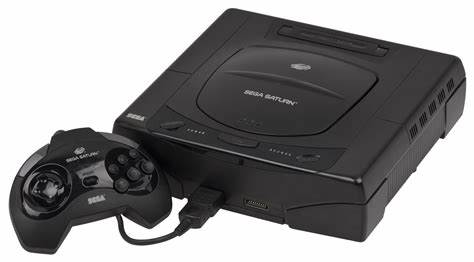As a gaming enthusiast, I often find myself reminiscing about the golden era of video games: the 1990s. This decade was a pivotal time for the industry, marked by innovation, creativity, and a massive expansion of the gaming community. In this article, I will explore some of the best gaming experiences from the 1990s, highlighting the influential titles, groundbreaking consoles, and cultural impact that shaped the gaming world as we know it today.
The Rise of 3D Graphics
One of the most significant advancements in gaming during the 1990s was the shift from 2D to 3D graphics. This transition opened up a new realm of possibilities for game developers and players alike. I remember the excitement of playing titles like Doom and Quake, which not only introduced immersive environments but also pioneered online multiplayer gaming. These games laid the groundwork for the first-person shooter genre, which continues to be popular today.
Iconic Titles
- Doom (1993): Often hailed as one of the greatest video games of all time, Doom revolutionized the first-person shooter genre with its fast-paced action and atmospheric gameplay. It introduced players to a world filled with demons and weapons, setting the stage for future FPS titles.
- Quake (1996): Following in Doom‘s footsteps, Quake took 3D graphics to the next level. It featured advanced engine technology and offered a more immersive experience. The game’s multiplayer mode was groundbreaking, allowing players to connect and compete over the internet.
The Console Wars
The 1990s also saw the rise of console wars, primarily between Nintendo and Sony. As a kid, I was torn between the two giants, each offering unique gaming experiences.
Nintendo’s Dominance
- Super Nintendo Entertainment System (SNES): Launched in 1990, the SNES continued to capture the hearts of gamers with its extensive library of classic titles. I fondly remember playing The Legend of Zelda: A Link to the Past and Super Mario World, both of which are considered masterpieces in game design.
- Nintendo 64: Released in 1996, the N64 introduced 3D gaming to a broader audience. I was captivated by the revolutionary gameplay of Super Mario 64, which allowed players to explore a vibrant 3D world filled with challenges and secrets.
Sony’s Entry
- PlayStation: Sony’s entry into the gaming market with the PlayStation in 1994 was a game-changer. I still recall the thrill of playing Final Fantasy VII, which not only showcased stunning graphics but also introduced players to a compelling narrative and character development.
The Emergence of PC Gaming
While consoles dominated the living room, PC gaming began to carve its niche. The flexibility and power of personal computers allowed for more complex games and modding communities.
Noteworthy PC Titles
- Starcraft (1998): This real-time strategy game became a cultural phenomenon, particularly in South Korea. I found myself engrossed in its intricate gameplay and competitive multiplayer matches, which created a thriving esports scene.
- The Sims (1999): This life simulation game was unlike anything I had ever played. It allowed players to create and manage virtual lives, leading to a unique gaming experience that appealed to a broad audience.
RPGs: A New Frontier
The 1990s were also a golden age for role-playing games (RPGs), introducing players to expansive worlds and deep storytelling.
Classic RPGs
- Chrono Trigger (1995): This time-traveling epic is often cited as one of the best RPGs ever made. The combination of engaging gameplay, memorable characters, and multiple endings made it a standout title that I still cherish.
- Baldur’s Gate (1998): This game brought the Dungeons & Dragons experience to life in a way that was both accessible and rich in content. The storytelling and character interactions captivated me, allowing for countless hours of gameplay.
The Cultural Impact of Gaming
The gaming culture of the 1990s laid the foundation for the industry we see today. From conventions to fan communities, the decade fostered a sense of belonging among gamers.
Gaming Conventions
Events like E3 (Electronic Entertainment Expo) became crucial for the gaming community. I remember anxiously awaiting announcements and trailers for upcoming games. These conventions not only showcased new technology but also brought together fans from all over the world.
Online Communities
The rise of the internet allowed gamers to connect in ways previously unimaginable. I participated in forums and chat rooms, discussing strategies and sharing tips. This sense of community has only grown, leading to the establishment of platforms like Twitch and Discord, where gamers can interact in real-time.
The Legacy of 1990s Gaming
Looking back, the 1990s were a transformative decade for the gaming industry. The innovations and experiences from this era continue to influence modern games and gaming culture. As I reflect on this time, I realize how much it shaped my love for gaming and the connections I made along the way.
Influences on Modern Gaming
Many of the trends established in the 1990s are still prevalent today. The emphasis on storytelling, character development, and multiplayer experiences can all be traced back to this era. Games like The Witcher 3 and Fortnite owe much to the groundwork laid by their 1990s predecessors.
Conclusion
The 1990s were truly a remarkable time for gaming. From the rise of 3D graphics to the console wars and the emergence of online communities, this decade provided us with unforgettable experiences and shaped the future of gaming. As I share my memories of gaming in the 1990s, I invite you to reflect on your own experiences. What were your favorite games and moments from this iconic decade? Whether you were battling demons in Doom or exploring the vast world of Final Fantasy VII, the impact of 1990s gaming is undeniable.
<iframe width="560" height="315" src="https://www.youtube.com/embed/u1Enbwaw8gY?si=B1iU_ROAylYpP4vb" title="YouTube video player" frameborder="0" allow="accelerometer; autoplay; clipboard-write; encrypted-media; gyroscope; picture-in-picture; web-share" referrerpolicy="strict-origin-when-cross-origin" allowfullscreen></iframe>




.jpg?w=100&resize=100,70&ssl=1)
